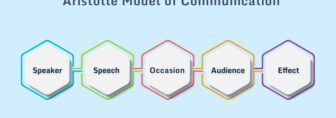Types Of Assessment Tools In Education

It is human nature to constantly assess and consider each of our moves, and evaluate whether they meet the specifications set by each goal, throughout our lives.
However, as we move through different stages of life, we might come across a few different sets of formal assessments presented to us, to prove our capabilities for certain fields and streams of work.
To pull these assessments off, you might require the assistance of certain tools. In this article, we will look over the six types of assessment tools, and how we can use them to evaluate performances.
What Is An Assessment Tool?
An assessment tool is essentially a method or technique for determining whether an individual has enough knowledge regarding a specific course of a subject, and if they are able to align this knowledge with the bigger picture that exists of the theory or the framework.
This is done through evaluation. You may create a series of assessment templates online by using various tools like this rubric maker — StoryboardThat offers plenty of templates and ready-to-use worksheets.
Assessment techniques may differ based on the context and purpose of the evaluation. For instance, personality tests use the user’s responses to discover character traits. Apart from that, financial assessments help to measure your knowledge of concepts revolving around savings and investments.
Regardless of what assessment technique you employ, they depend entirely on a set of well-thought questions to gather a series of insights on the topic. When you interpret and evaluate these insights, you would reach an informed conclusion.
Types
The following are common types of techniques commonly employed as assessment tools to evaluate knowledge:
Rubrics
To assess and evaluate qualitative student work that includes essays, projects, reports, and presentations, the use of rubrics is recommended. Rubrics are the optimum choice to denote the specific expectations set for an assignment and for student performance.
They can be used for a variety of diverse reasons. You may use it for grading, providing feedback to students, as well as constantly encouraging them to ponder on their learning.
Curriculum Mapping
Curriculum Mapping may not be a tool appointed for data collection, however, it is a great technique that you can employ to focus on assessment as well as the improvements that may follow it. When used for such measures, this particular tool can prove to be the most useful, informative, and effective choice.
Focus Groups
This method focuses on candid reflections and ideas from a small group of participants, preferably students. These reflections may be the source of unanticipated insights that may be valuable to guide the direction and tools for assessment.
Portfolios
Portfolios can act as an assessment tool that can aid to provide a window into the process of student learning. This may be either across a semester-long process or a four-year tenure at a particular university or institution. These portfolios can then be evaluated using a rubric.
Interviews
Interviews can be a great medium that you can employ for data collection. Interviews have two main types where the acquisition of either may prove highly useful depending on the purpose.
These types are structured and unstructured. Structured interviews can be time-taking to pen down and collect targeted or specific information. Whereas, unstructured interviews are the optimum medium to collect diverse data, leaving room for unplanned topics and new original ideas to emerge.
Surveys
Surveys are another extraordinary source for data collection. You can collect a variety of diverse data laid out on qualitative and quantitative responses, depending on the requirement of the underlying evaluation.
It can be a program-based survey or recent alumni or even an analysis of the SERU survey results. Well-crafted survey questions can actively pave the way for important information concerning student perceptions and experiences.
The choice of whether you prefer qualitative or quantitative data is crucial for your evaluation. This choice can further lead you to decide the type of questions you deem ideal to structure your survey.
The questions if qualitative can be open-ended providing greater insight, whereas quantitative data collection can be conducted through close-ended questions providing precise, to-the-point responses.
Conclusion
Conducting an appropriate assessment may require time, thought, attention, planning, and often even extensive collaboration. Assessment tools employed may diversely range from well-crafted survey questions to a detailed rubric. Either of the techniques may prove to be largely useful if they address the topic under evaluation well, and are feasible to use.
Read Also:


























